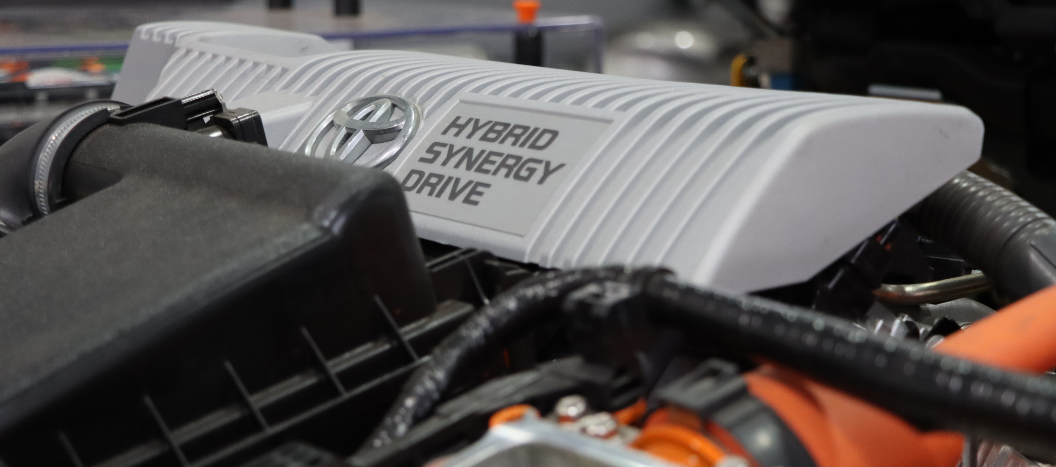
Devon and Torbay Devolution Deal shapes the way forward for future engineers studying at Exeter College
Embracing new technologies has been integral to the ethos and success of engineering at Exeter College through the years and at no point has this agenda been more critical than now.
As the South West continues to expand its portfolio of low carbon energy, training providers across the region are in a perennial cycle of curriculum review in order to adequately prepare learners for their futures in the green economy at the local, national and even global levels. With large-scale clean energy projects such as Hinkley Point C in Somerset, floating offshore wind explorations, the establishment of the UK’s only operating geothermal plant at Eden Project, amongst other myriad green initiatives, the South West is more than set to play its part in meeting national net zero ambitions.
The Level 2 Devolution Deal for Devon and Torbay has meant that local authorities have been able to collaborate to maximise opportunities in support of net zero objectives. This has included benefitting from the capital grant scheme funded by the UK government as part of the Deal and managed by Devon County Council. The scheme has allowed Colleges to invest in facilities that will advance growth in significant sectors that include advanced manufacturing and engineering and environmental technologies, such as alternative fuel vehicles.
In the Faculty of Engineering, Aerospace and Automotive at Exeter College recent investments have included two electric hybrid vehicles, as well as a fully interactive Toyota Mirai hydrogen fuel cell electric vehicle trainer.
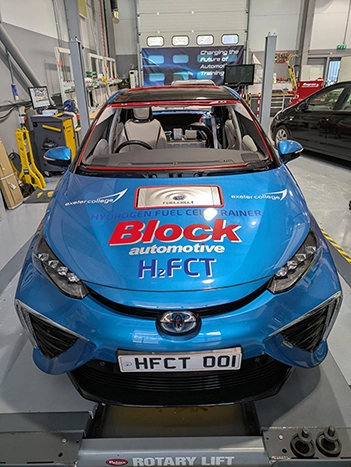
“The provision of this new Toyota Mirai training rig takes us one step further in our aim to bridge the skills gaps in the transition to a green economy. This facility offers practical, hands-on experience to further prepare our learners for the mass roll-out of alternatively fuelled vehicles, including hybrid, electric and hydrogen.” – Andy Wells, Head of Faculty
Engineering at the College has also been bolstered by the introduction of new equipment. In February 2025 the Faculty took delivery of a number of Haas Automation computer numerically controlled (CNC) machines. The machines produce a wide range of industrial components for sectors including automotive, aerospace, medical, electronics, and more. That students have access to specialist, cutting edge technologies such as these stands them in good stead for their progression into the workforce of tomorrow.
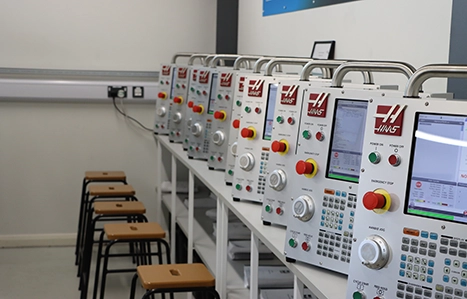
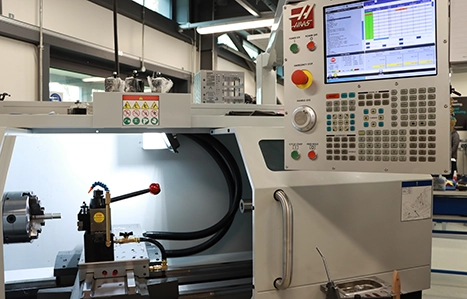
“On the practical side of the course we have been given the opportunity to use CNC mills and CNC lathes. This programme gives you a very in-depth and close relationship with these tools so you can feel confident with them even before you enter the working environment.” – Callum Northover, Design and Development for Engineering and Manufacturing T Level student
Quality training to produce high-precision parts is a vital tool in the advancement of renewable energy technologies in the region. To deliver the required standard of training providers must continue to invest in top-level industrial equipment, and we see this played out at Exeter College as funding facilitates the procurement of the most up to date machinery. Engineering students have also recently seen the arrival of the latest virtual welding equipment, making the Faculty one of the largest such learning facilities in the UK. The new machines add to the suite of virtual welders already in place, increasing capacity for training opportunities. The simulated welding units offer a safe and affordable introduction to complex processes, while also conserving resources. They are an important bridge between the welding curriculum and hands-on training.
The decarbonisation of all sectors of the UK economy by 2050 remains integral to UK government policy. As local leaders are granted increased powers and funding to support the Net Zero Strategy we can expect to see localised responses to climate action, including the facilitation of low-carbon travel, and investment to meet the skills needs of the green economy.
“As a key learning and training provider in the South West we have a responsibility to ensure our provision is fully responsive to the requirements of the economy. It is our duty to ensure we are adequately preparing learners so they can progress into exciting opportunities available within the workforce in this region, and beyond, with the skills to support an industrial strategy based on green growth. Our thanks to Devon County Council for providing the necessary funding to enable us to invest in the infrastructure that allows us to do this effectively.” – Mike Blakeley, Executive Director of Partnerships and Apprenticeships
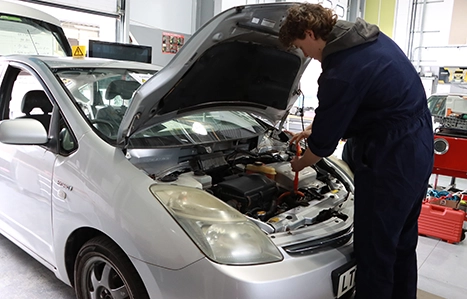
The College looks forward to an official opening of its new facilities to mark the support of key project stakeholders in early spring.
For those interested in learning and training opportunities within the areas of Engineering, Automotive and Aerospace, the College will hold its next Open Event on 23 April, 5-7pm, followed by a further Engineering Apprenticeship Expo on 30 April. Head to the events webpage to find out more and to register.



